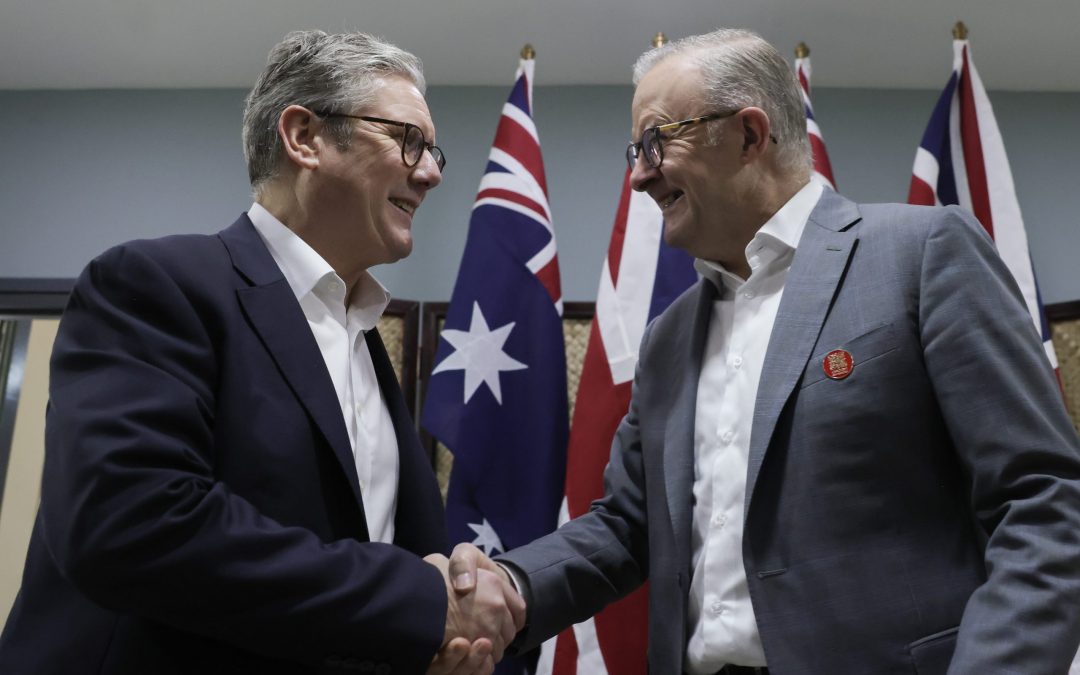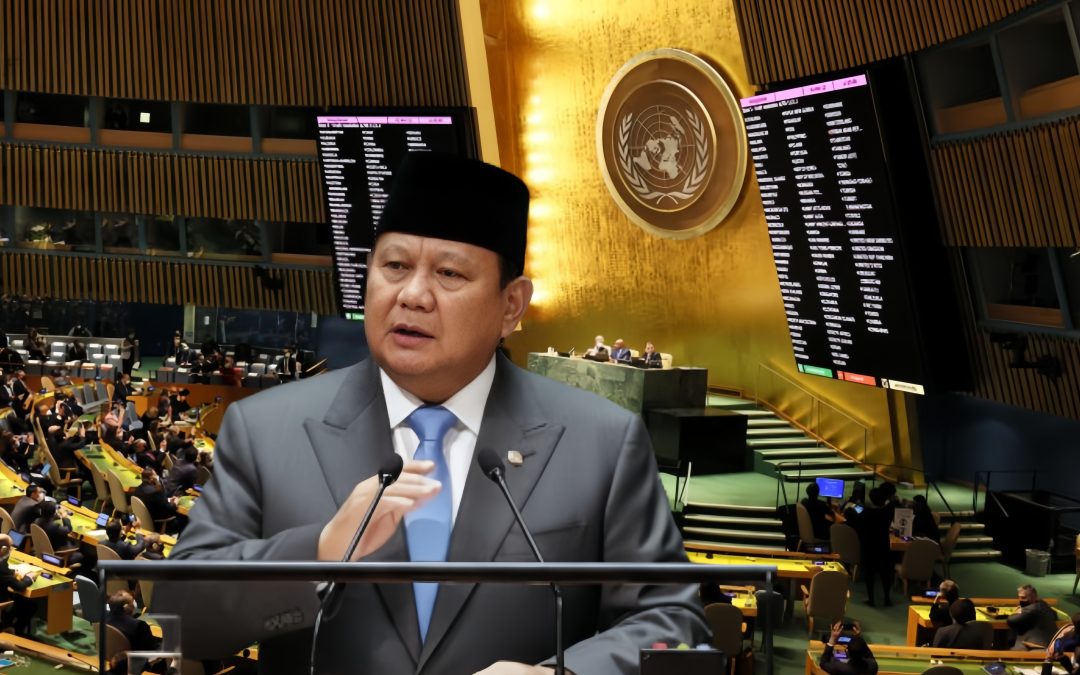Kishino Bawono, Middle East Studies Specialist
The hidden agenda behind Israel’s invasion of Gaza seems to be coming to light. Until now, Israel’s invasions have always been justified as efforts to rescue Israeli citizens captured by Hamas. These invasions have also been presented as attempts to neutralize the security threat posed by Hamas. Since May 5, 2025, a number of Israeli political leaders and military officers have begun to openly use the term “sustained presence” in the Gaza Strip and permanent occupation of the Gaza Strip. Israel has even announced its intention to carry out a new, broader attack as an important moment for Israel to realize this plan. Israel even wants to control the distribution of international humanitarian aid by taking on a role in the distribution of such aid. Trump’s arrival in the Middle East and Hamas’ promise to release Israeli prisoners do not seem to have changed the worsening situation in the Gaza Strip.
In order to help preserve the memory of the events and facts surrounding the mass displacement of the Palestinian people since 1948, commemorated on Nakba Day every May 15, PACIS conducted an interview with Kishino Bawono, a Middle East Studies Specialist at Unpar, on May 16, 2025. Below is an excerpt from PACIS’ interview with Kishino Bawono, a Middle East Studies Specialist at Unpar.
PACIS: Why does the idea of Israeli occupation in Gaza seem to have suddenly emerged amid international pressure for a ceasefire?
The initial motivation for Israel’s invasion of Gaza was driven by the need to neutralize Hamas and repatriate those kidnapped by Hamas. On paper, it can be understood that if there are people who have been kidnapped, they must be repatriated, and if there is a threat, it must be neutralized.
However, the practice has come under scrutiny because, from the outset of Israel’s retaliation until it gained control of the Gaza Strip, at least two ministers in Netanyahu’s cabinet—Bezalel Smotrich (Minister of Finance) and Itamar Ben-Gvir (Minister of Internal Security) from the far-right party—sought to make the invasion’s objective the restoration of conditions where Gaza is under Israeli government control. This situation is reminiscent of the situation before Prime Minister Ariel Sharon announced his unilateral decision on the Gaza Disengagement Plan to withdraw Israeli forces from Gaza in 2004.
There are several scenarios regarding what they are currently doing with their plan to take control of the Gaza Strip. I have heard that it could be just the northern part or the entire Gaza Strip. This takeover of the Gaza Strip seems to align with what was stated by the two ministers in Netanyahu’s cabinet.
Netanyahu must listen to his two ministers because it is in his interest to maintain his position as Prime Minister. Netanyahu has an interest in maintaining the coalition in his cabinet to ensure his position as Prime Minister remains secure. Additionally, there are allegations of several corruption cases that could implicate him as a suspect. Netanyahu does not want to be a suspect and is therefore striving to obtain political immunity and legal immunity.
Netanyahu needs to continue building the coalition by retaining these two ministers and maintaining the coalition. If they leave, the coalition will collapse, and he will no longer be able to serve as Prime Minister.
Actually, when there was a proposal for a ceasefire, the internal coalition rejected it. However, Prime Minister Netanyahu reassured the group opposing the ceasefire to remain calm because, in the end, the ceasefire plan would be easily thwarted. The desire to occupy Gaza would be easily fulfilled.
PACIS: Is President Donald Trump’s idea of relocating the Palestinian population in Gaza part of a plan for permanent occupation of Gaza?
The US government has indeed raised the idea of relocating Palestinians out of Gaza, including to Indonesia, for various reasons. This idea seems to be in line with Netanyahu’s desire to control Gaza.
However, I am unsure what the government would gain from Israel beyond the fact that Israel is a traditional ally and thus deserves support.
In recent days, there has been a development involving a speech by President Trump regarding the release of Edan Alexander, an American citizen with dual citizenship in the United States and Israel. He mentioned that there is goodwill to release Edan Alexander, but did not specify whether this involves negotiations between the US government and Hamas, or whether the Israeli government is also involved.
However, it is clear that in one of his social media posts or speeches, Trump emphasized the need to end the war. It is important to remember that Trump is a highly unpredictable president. So sometimes he is suddenly in favor of something, then the next day he is against it, then the day after that he is opposed to it, and then the day after that he is in favor of it again.
This is what is a bit difficult with Trump. What does he actually want? Because if you ask him whether he is acting based on the national interests of the United States, it is unclear.
I am still not sure whether it is truly in the national interest of the United States or just the personal interest of President Trump.
PACIS: In the name of humanity, should Indonesia support the idea of relocating Gaza residents to Indonesia?
I hope that the Indonesian government will not approve the proposal to relocate them to Indonesia. The sentiment is that this Israeli project to establish their state will be more successful if there are fewer Palestinians there. When facilitating the relocation of people from there to another place, the packaging may be humanitarian aid so that they can live in a safer place, right? If the packaging is good, but if you look at what’s inside, relocation is one of Israel’s strategies to fully control Gaza.
One component of genocide is forced relocation. I don’t think this is something we should agree to. Indonesia’s reputation will be tarnished if it agrees to the idea of relocation.
“Forced relocation is a form of genocide… Indonesia’s reputation will be tarnished if it agrees to the idea of relocation.”
PACIS: How should we respond to Israel’s plans for a larger offensive in Gaza?
Looking at the latest developments, it is difficult for us to be optimistic about the situation. This has become yet another cycle of violence. Even if we talk about the Nakba, the large demonstrations in which Palestinians felt exhausted after Israel successfully established its state and then declared independence, which has now been celebrated for 77 years.
The plight of the Palestinian people is growing increasingly dire, not only in Gaza but also in the West Bank. One thing that must not be forgotten is that Palestinians are also present in the West Bank.
According to Al-Jazeera, in its recent reports, it was stated that the Israeli army there has been relocating Palestinians. The Israeli army has taken over the land and homes of Palestinians. These homes are then demolished to make way for Jewish settlements in the West Bank.
In total, nearly 40,000 people have been forcibly displaced. So, in fact, violence against Palestinians is not only happening in Gaza, but also in the West Bank.
What makes us even more pessimistic is that Prime Minister Netanyahu has stated in the last few days or weeks that he will call up more reservists to join his army. This means that more people will be called up to prepare for battle.
The assumption is that as more people who were previously reserves are activated, it means that more military operations will be carried out. These operations can be carried out anywhere, both in the Golan Heights and in Syria.
These operations will further cement their presence in Gaza.
PACIS: To what extent does Trump’s arrival bring new hope for peace in the Middle East, especially for the Palestinian people?
The answer may still be somewhat pessimistic because, on the one hand, during my studies of Middle Eastern politics and the Israeli-Palestinian conflict, I learned that many Arab countries actually play politics by having two faces.
On one hand, countries must show their public and the general public that they are still pro-Palestinian, but on the other hand, when there are their own needs and national interests, they sometimes set aside their priorities toward Palestine.
This situation is reflected in the Abraham Accords, which I see as some countries that, if we believe that politics is based on identity, should be closer and more pro-Palestinian.
However, due to their national interests, they decided to make peace with Israel and normalize relations with the country. Traditionally, they have always spoken as friends of Palestine. However, they have their own interests that they are pursuing. Syria, for example, needs to recover after the fall of President Bashar Al-Assad and therefore hopes that the United States will lift the sanctions previously imposed on Syria. Neighboring countries also hope that the number of Syrian refugees entering their territories will decrease if Syria recovers.
On the other hand, some other countries, such as Saudi Arabia, have their own concerns about arming themselves, for example, in the event of a conflict with a neighboring country.
Whether Trump will have a positive impact so far remains unpredictable. I still believe that President Trump does not always act in the national interest of the United States, but rather in his own interest or that of his inner circle. If Trump engages in economic cooperation talks and reaches agreements with partner countries, it is hoped that economic cooperation will also bring benefits for Trump and his inner circle.
This is striking because when discussing economic cooperation, Trump brought along several American businessmen from his inner circle, such as Elon Musk. This gives the impression that the US president is very self-interested rather than nationally interested.
So when it comes to the Gaza issue, it is impossible to imagine what Palestinian groups, such as Hamas, Fatah or any other, could offer President Trump in order to put pressure on Israel.
Therefore, I remain skeptical and pessimistic that President Trump will have a positive impact on the Palestinian people.
“…… it is hard to imagine what Palestinian groups, such as Hamas, Fatah, or any other group, could offer President Trump in order to pressure Israel. Therefore, I remain skeptical… that President Trump will have a positive impact on the Palestinian people.”
PACIS: So what can the world do to help Palestine?
Of course, we must continue to provide full support to the Palestinian people who are currently in a difficult situation.
Support can be provided by helping to preserve the memory of events and facts about all the hardships and efforts of the Palestinian people in their resistance against Israel. This is known as Nakba Day.
PACIS Notes on Nakba Day
Every May 15 is commemorated as Nakba Day or Catastrophe Day, marking the mass displacement of Palestinians during the Arab-Israeli War of 1948. The mass displacement of Palestinians continues to this day, 77 years after Palestinians were forced to leave their homes in the Gaza Strip and the West Bank.
About the Speaker:
Kishino Bawono completed his undergraduate studies at Gadjah Mada University and his master’s degree at the School of Oriental and African Studies, University of London (M.Sc), specializing in Middle Eastern Politics.
His current thoughts can be viewed at https://jabar.tribunnews.com/2025/01/18/gencatan-senjata-israel-hamas-pengamat-internasional-unpar-donald-trump-tunjukkan-siapa-bosnya and https://www.youtube.com/watch?v=CwAbtQQa3fo







